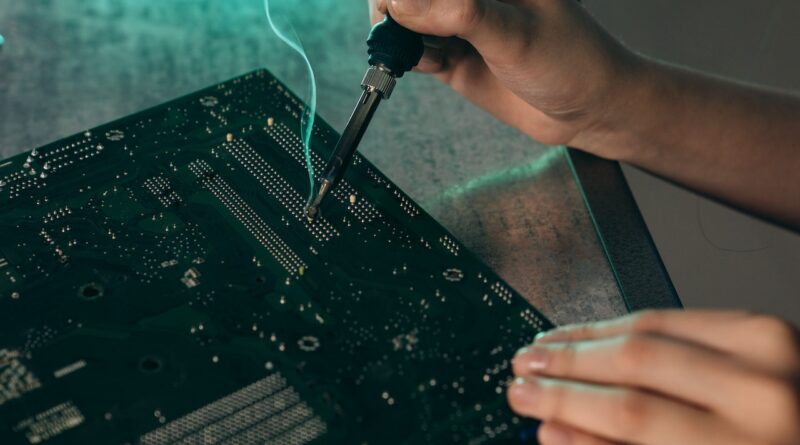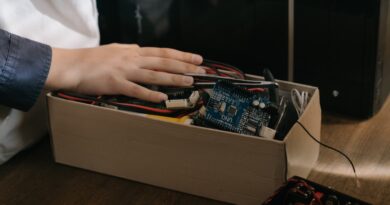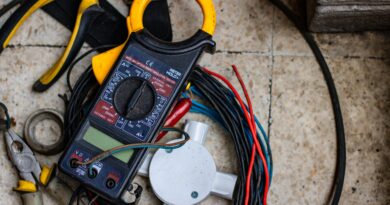Performance Matters: How Electrical Testing Experts Ensure Safety and Reliability in Noida
Introduction
Imagine a world without electricity. It’s hard to fathom, isn’t it? From the moment we wake up until we go to bed, we rely on electrical power for almost everything we do. Whether it’s lighting up our homes, powering our devices, or running industrial machinery, electricity is an indispensable part of our lives. However, ensuring the safety and reliability of electrical systems is crucial to prevent accidents, damages, and disruptions. That’s where electrical testing experts in Noida come into the picture. In this article, we will explore the vital role these experts play in maintaining a secure and efficient electrical infrastructure.
Table of Contents
- Introduction
- Importance of Electrical Testing
- Safety Measures in Electrical Testing
- Types of Electrical Testing
- 4.1. Insulation Resistance Testing
- 4.2. Earth Resistance Testing
- 4.3. Power Quality Testing
- 4.4. Thermal Imaging Testing
- 4.5. Voltage Drop Testing
- Testing Equipment and Techniques
- 5.1. Megohmmeters
- 5.2. Clamp Meters
- 5.3. Infrared Cameras
- 5.4. Digital Multimeters
- 5.5. Circuit Tracers
- Compliance with Standards and Regulations
- Benefits of Regular Electrical Testing
- 7.1. Enhanced Safety
- 7.2. Preventive Maintenance
- 7.3. Increased Reliability
- 7.4. Legal Compliance
- 7.5. Cost Savings
- Choosing a Reliable Electrical Testing Service in Noida
- Conclusion
- FAQs
1. Introduction
In a city like Noida, which is rapidly expanding and witnessing extensive industrial growth, the demand for electricity is higher than ever before. However, with increased power consumption comes the need for robust electrical infrastructure. Electrical testing experts play a vital role in ensuring the safety, efficiency, and reliability of electrical systems in Noida.
2. Importance of Electrical Testing
Electrical testing is a comprehensive evaluation process that aims to identify potential risks, faults, and weaknesses in electrical systems. It involves assessing the performance of various components, such as cables, transformers, circuit breakers, and distribution panels. By conducting regular testing, experts can identify issues before they escalate into hazardous situations or cause costly breakdowns.
3. Safety Measures in Electrical Testing
Safety is paramount when it comes to electrical testing. Professionals follow stringent safety protocols to protect themselves and others from electrical hazards. They use personal protective equipment (PPE) like insulated gloves, safety glasses, and arc flash suits. Additionally, they ensure that the power supply is disconnected and locked out during testing to prevent accidents.
4. Types of Electrical Testing
Electrical testing encompasses various techniques to evaluate different aspects of electrical systems. Here are some common types of electrical testing conducted by experts in Noida:
4.1. Insulation Resistance Testing
Insulation resistance testing helps determine the integrity of insulation materials used in electrical equipment. It involves applying a high voltage to the equipment and measuring the resistance of the insulation. This test helps detect insulation breakdowns, moisture ingress, or other issues that may compromise the safety and performance of the equipment.
4.2. Earth Resistance Testing
Earth resistance testing evaluates the effectiveness of the grounding system. It measures the resistance between the grounding electrode and the earth, ensuring that it falls within safe limits. This test helps prevent electric shocks and ensures proper functioning of protective devices like circuit breakers and residual current devices (RCDs).
4.3. Power Quality Testing
Power quality testing assesses the quality and stability of electrical power supplied to a system. It involves measuring parameters like voltage fluctuations, harmonics, and power factor. By identifying and rectifying power quality issues, experts can prevent equipment malfunction, energy wastage, and disruptions in power supply.
4.4. Thermal Imaging Testing
Thermal imaging testing uses infrared cameras to detect abnormal heat patterns in electrical components. It helps identify loose connections, overloaded circuits, or faulty equipment that may pose fire hazards or lead to breakdowns. By detecting these issues early on, professionals can take preventive measures to avoid catastrophic failures.
4.5. Voltage Drop Testing
Voltage drop testing measures the voltage difference between the source and the load in a circuit. It helps identify excessive voltage drops, which can cause equipment malfunction or inadequate performance. This test ensures that electrical systems operate within optimal voltage levels and helps maintain efficiency.
5. Testing Equipment and Techniques
Electrical testing experts in Noida utilize various equipment and techniques to perform accurate assessments. Some commonly used tools include:
5.1. Megohmmeters
Megohmmeters, also known as insulation resistance testers, measure the resistance of insulation materials. They apply high voltages to detect leaks or weaknesses in the insulation, helping identify potential risks and ensuring the safety of electrical equipment.
5.2. Clamp Meters
Clamp meters are versatile devices that combine a digital multimeter with a current sensor. They can measure current flow in wires without the need to disconnect them. Clamp meters are useful for troubleshooting electrical systems and determining power consumption.
5.3. Infrared Cameras
Infrared cameras, or thermal imaging cameras, capture and display the heat distribution of electrical components. They help identify hotspots, loose connections, and abnormal temperature patterns, allowing experts to take corrective actions before major failures occur.
5.4. Digital Multimeters
Digital multimeters (DMMs) are essential tools for electrical testing. They measure various electrical parameters such as voltage, current, and resistance. DMMs provide accurate readings and are versatile for troubleshooting electrical systems.
5.5. Circuit Tracers
Circuit tracers are used to locate and trace electrical circuits within a system. They help experts identify the path of wiring, verify connections, and diagnose circuit-related issues efficiently.
6. Compliance with Standards and Regulations
Electrical testing experts in Noida adhere to national and international standards and regulations to ensure the highest level of safety and reliability. These standards, such as the National Electrical Code (NEC), International Electrotechnical Commission (IEC) standards, and Occupational Safety and Health Administration (OSHA) regulations, provide guidelines for electrical installations, testing procedures, and safety measures.
7. Benefits of Regular Electrical Testing
Regular electrical testing offers several benefits to both residential and commercial settings. Here are some key advantages:
7.1. Enhanced Safety
By identifying potential electrical hazards and rectifying them promptly, regular testing significantly reduces the risk of electrical accidents, fires, and injuries.
7.2. Preventive Maintenance
Electrical testing allows for the early detection of faults or weaknesses in equipment, enabling proactive maintenance and preventing costly breakdowns.
7.3. Increased Reliability
Testing ensures that electrical systems operate at their optimal performance levels, reducing the chances of unplanned downtime and disruptions in power supply.
7.4. Legal Compliance
Regular electrical testing ensures compliance with relevant electrical safety regulations and standards. This helps businesses and individuals avoid penalties, lawsuits, and other legal consequences associated with non-compliance.
7.5. Cost Savings
By identifying and addressing potential issues early on, electrical testing helps prevent major breakdowns and costly repairs. It also improves energy efficiency, reducing utility bills and saving money in the long run.
8. Choosing a Reliable Electrical Testing Service in Noida
When it comes to electrical testing, it is crucial to select a reliable and experienced service provider. Here are some factors to consider:
- Expertise: Look for a company with extensive experience and a team of qualified electrical testing professionals.
- Accreditation: Check if the service provider holds relevant certifications and accreditations in the field of electrical testing.
- Comprehensive Testing: Ensure that the company offers a wide range of testing services and utilizes advanced equipment and techniques.
- Customer Reviews: Read reviews and testimonials from previous clients to gauge the service provider’s reputation and customer satisfaction.
- Cost-Effectiveness: While cost is an important factor, prioritize quality and expertise over price when choosing an electrical testing service.
By selecting the right electrical testing service in Noida, you can ensure the safety, reliability, and compliance of your electrical systems.
9. Conclusion
In a rapidly developing city like Noida, ensuring the safety and reliability of electrical systems is of paramount importance. Electrical testing experts play a critical role in assessing and maintaining the integrity of electrical infrastructure. Through various testing techniques and equipment, they identify potential risks, ensure compliance with regulations, and enhance the overall performance of electrical systems. By prioritizing regular electrical testing, individuals and businesses can mitigate risks, prevent accidents, and enjoy uninterrupted access to safe and reliable electrical power.
FAQs
1. How often should electrical testing be conducted?
The frequency of electrical testing depends on various factors such as the type of electrical installation, its usage, and relevant regulations. However, it is generally recommended to conduct periodic testing every few years or after any major changes or additions to the electrical system.
2. Can I perform electrical testing on my own?
Electrical testing involves complex procedures and requires specialized knowledge and equipment. It is best to hire professional electrical testing experts who have the expertise and experience to conduct accurate assessments and ensure safety.
3. What are the potential risks of not conducting electrical testing?
Neglecting electrical testing can lead to various risks, including electrical fires, equipment malfunctions, electrical shocks, and even fatalities. Regular testing helps identify and address potential issues before they escalate into hazardous situations.
4. Is electrical testing only necessary for commercial properties?
No, electrical testing is essential for both residential and commercial properties. It ensures the safety and reliability of electrical systems in homes, offices, industrial facilities, and other settings.
5. Can electrical testing help reduce energy consumption?
Yes, electrical testing can help identify energy inefficiencies and power quality issues, allowing for corrective measures to optimize energy usage. By addressing these issues, electrical testing contributes to energy savings and reduced utility costs.




